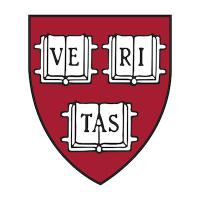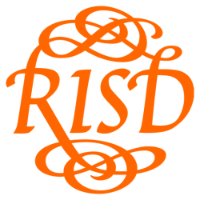What do they do?
Perform laboratory and field tests to monitor the environment and investigate sources of pollution, including those that affect health, under the direction of an environmental scientist, engineer, or other specialist. May collect samples of gases, soil, water, and other materials for testing.
Also known as:
Environmental Health Officer (EHO), Environmental Technician (Environmental Tech), Industrial Pretreatment Program Specialist (IPP Specialist), Lab Technician (Laboratory Technician), Public Health Sanitarian, Sanitarian, Sanitarian Specialist, Soil Lab Technician (Soil Laboratory Technician), Water Quality Analyst, Water Quality Specialist
-
7.2%
Change
Ranks #44 in job growth rate180Job Openings
Ranks #7 in net job growth
Colleges with the most graduates that become Environmental Science and Protection Technicians, Including Health
-
University of California-Santa Barbara
Santa Barbara, CA
-
Harvard University
Cambridge, MA
-
Columbia University in the City of New York
New York, NY
-
Rhode Island School of Design
Providence, RI
-
Northwestern University
Evanston, IL
Looking for colleges that offer a specific major? Use the College Match Tool to find your best-matched schools and discover your estimated Net Price!
- Doctorate or Professional Degree (2%)
- Master's degree (9%)
- Bachelor's degree (34%)
- Associate's degree (13%)
- Some college, no degree (21%)
- High school diploma equivalent (19%)
- Less than high school diploma (2%)
Most Popular Majors that prepare Environmental Science and Protection Technicians, Including Health
-
#1
-
Degrees Granted
1,430
-
Female Students
895
-
Male Students
535
-
Median Starting Salary
$47,533
-
-
#2
-
Degrees Granted
1,058
-
Female Students
665
-
Male Students
393
-
Median Starting Salary
$43,300
-
-
#3
-
Degrees Granted
16
-
Female Students
12
-
Male Students
4
-
Median Starting Salary
$42,090
-
-
#4
-
Degrees Granted
8
-
Female Students
5
-
Male Students
3
-
Median Starting Salary
$45,700
-
People in this career often have these skills:
- Reading Comprehension - Understanding written sentences and paragraphs in work-related documents.
- Active Listening - Giving full attention to what other people are saying, taking time to understand the points being made, asking questions as appropriate, and not interrupting at inappropriate times.
- Writing - Communicating effectively in writing as appropriate for the needs of the audience.
- Speaking - Talking to others to convey information effectively.
- Critical Thinking - Using logic and reasoning to identify the strengths and weaknesses of alternative solutions, conclusions, or approaches to problems.
- Science - Using scientific rules and methods to solve problems.
- Monitoring - Monitoring/Assessing performance of yourself, other individuals, or organizations to make improvements or take corrective action.
People in this career often know a lot about:
- Customer and Personal Service - Knowledge of principles and processes for providing customer and personal services. This includes customer needs assessment, meeting quality standards for services, and evaluation of customer satisfaction.
- Chemistry - Knowledge of the chemical composition, structure, and properties of substances and of the chemical processes and transformations that they undergo. This includes uses of chemicals and their interactions, danger signs, production techniques, and disposal methods.
- English Language - Knowledge of the structure and content of the English language including the meaning and spelling of words, rules of composition, and grammar.
- Biology - Knowledge of plant and animal organisms, their tissues, cells, functions, interdependencies, and interactions with each other and the environment.
- Law and Government - Knowledge of laws, legal codes, court procedures, precedents, government regulations, executive orders, agency rules, and the democratic political process.
- Computers and Electronics - Knowledge of circuit boards, processors, chips, electronic equipment, and computer hardware and software, including applications and programming.
- Mathematics - Knowledge of arithmetic, algebra, geometry, calculus, statistics, and their applications.
People in this career often have talent in:
- Oral Comprehension - The ability to listen to and understand information and ideas presented through spoken words and sentences.
- Written Comprehension - The ability to read and understand information and ideas presented in writing.
- Oral Expression - The ability to communicate information and ideas in speaking so others will understand.
- Written Expression - The ability to communicate information and ideas in writing so others will understand.
- Deductive Reasoning - The ability to apply general rules to specific problems to produce answers that make sense.
- Near Vision - The ability to see details at close range (within a few feet of the observer).
- Problem Sensitivity - The ability to tell when something is wrong or is likely to go wrong. It does not involve solving the problem, only recognizing that there is a problem.
- Inductive Reasoning - The ability to combine pieces of information to form general rules or conclusions (includes finding a relationship among seemingly unrelated events).
- Speech Clarity - The ability to speak clearly so others can understand you.
- Speech Recognition - The ability to identify and understand the speech of another person.
- Information Ordering - The ability to arrange things or actions in a certain order or pattern according to a specific rule or set of rules (e.g., patterns of numbers, letters, words, pictures, mathematical operations).
People in this career often do these activities:
- Collect environmental data or samples.
- Prepare scientific or technical reports or presentations.
- Record research or operational data.
- Prepare biological samples for testing or analysis.
- Confer with clients to exchange information.
- Analyze geological samples.
- Calibrate scientific or technical equipment.
- Advise others on matters of public policy.
- Inspect areas for compliance with sanitation standards.
- Set up laboratory or field equipment.
- Develop environmental sustainability plans or projects.
- Direct natural resources management or conservation programs.
- Inspect equipment to ensure proper functioning.
- Assess compliance with environmental laws.
- Advise others on business or operational matters.
- Test quality of materials or finished products.
- Develop environmental research methods.
- Analyze environmental data.
- Determine methods to minimize environmental impact of activities.
- Supervise scientific or technical personnel.
- Research environmental impact of industrial or development activities.
- Analyze chemical compounds or substances.
- Prepare documentation for permits or licenses.
This page includes data from:

 Occupation statistics: USDOL U.S. Bureau of Labor Statistics Occupational Employment Statistics
Occupation statistics: USDOL U.S. Bureau of Labor Statistics Occupational Employment Statistics









